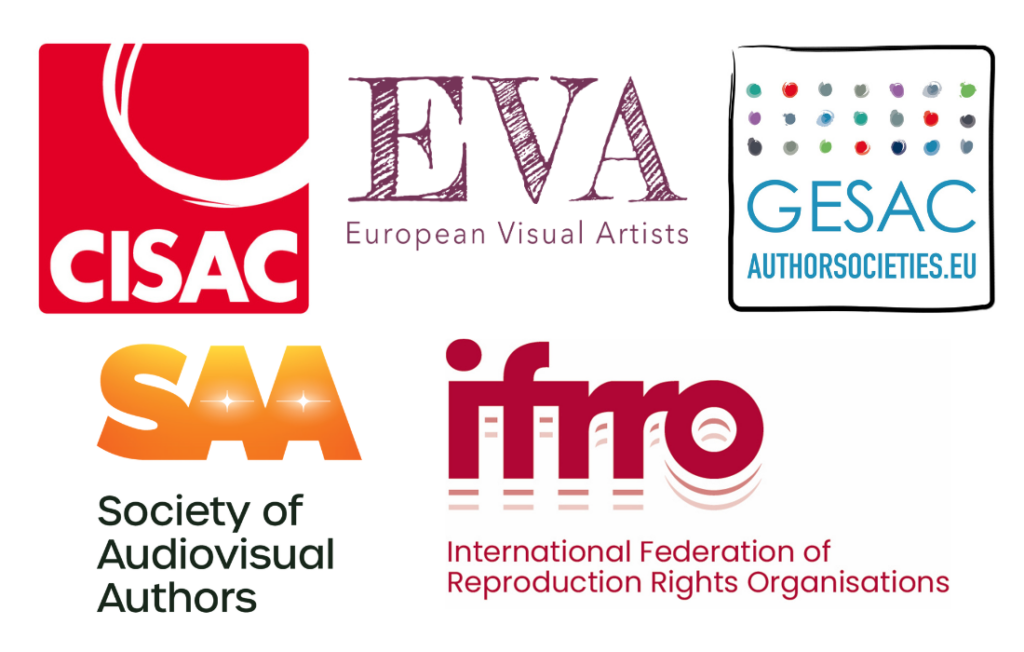Creators’ rights organisations call for drastic cut in Finland’s private copying compensation to be reversed

European and international associations of authors’ collective management organisations in the audiovisual, music, text and visual art’s sectors – CISAC, EVA, IFRRO, GESAC and the SAA – have been informed about the recent cut in the private copying compensation in Finland and joined forces to express their great concern on behalf of both the Finnish authors and all European/international authors community whose rights are represented in Finland through their Finnish members.
These organisations firmly assert that the Finnish government’s decision to half the level of private copying compensation paid from the state budget – from 11 million euros to 5.5 million euros cannot be justified. The decision is taken without a proper economic assessment of its impact on rightsholders, and it would have harmful and destructive consequences for authors and the whole creative ecosystem in Finland.
The compensation for private copying is mandatory under the Directive 2001/29/EC of the European Parliament and of the Council of 22 May 2001 on the harmonisation of certain aspects of copyright and related rights in the information society (‘InfoSoc Directive’) and the Finnish Copyright Act as a condition to the freedom of citizens to copy works for their private use through a private copy exception. Finland thus has the responsibility to organise and secure this fair compensation to authors .
Private copying compensation is a significant source of income for authors in the European Union and beyond .
In Finland, a yearly amount of 5.5 million euros to be split between authors, performers, producers and publishers in the audiovisual, music, text and visual arts’ sectors cannot be considered in any way as an adequate, sufficient or fair compensation for private copying.
In their statement directed to the Finnish government, the organisations emphasize that this severe cut would seriously harm authors and the Finnish cultural sector in two ways:
- The amount of compensation received by authors in the creative fields would suddenly be reduced by 50%, and
- Cultural promotion centres, partially sustained by private copy compensation would need to considerably reduce their support to events and the creation of new works in the creative sector (The Foundation for Music Promotion MES, The Promotion Centre for Audiovisual Culture AVEK and The VISEK Centre for the Promotion of Visual Art).
The statement says that the effects of this cut on the cultural sector, which is still recovering from the COVID-19 pandemic, would be catastrophic throughout Finland, where culture has a huge impact on the economy.
One concern that has been raised is that despite the ruling of the CJEU which considered “a scheme for fair compensation for private copying which, (…), is financed from the General State Budget in such a way that it is not possible to ensure that the cost of that compensation is borne by the users of private copies” as not compliant with the EU law , and some problematic practices of state budget-based compensation schemes at EU level (e.g. Spain and Estonia, which fortunately changed their system back to levy-based compensation in the end), Finland’s approach has not, until potentially now, raised any of the likely negative outcomes of such a model in terms of unpredictability and fluctuation of state-budget considerations at national level and arbitrariness in setting the amounts by public authorities
In their statement, the organisations ask the Finnish government to reconsider its destructive decision of cutting private copying compensation in half and to:
- Ensure that the level of private copying revenue is maintained at least at 11 million euros in order to safeguard the ability of authors to earn a living from their art and to ensure Finland’s legal responsibility to achieve a fair compensation scheme as required by the CJEU. This is a precondition for the future growth of the creative industries in Finland.
- Update the private copying system to meet the standards set by the CJEU and to accurately reflect the actual number of copies being made and their extensive use, particularly in the digital environment, to ensure a sustainable and fair level of compensation.